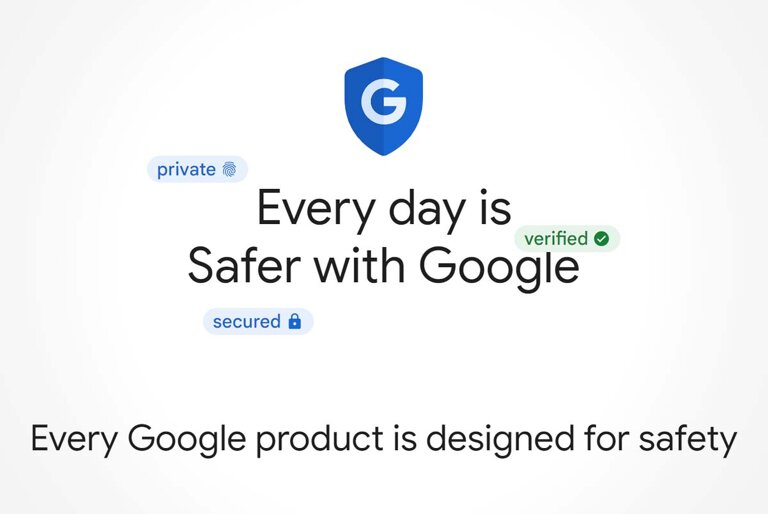Google is celebrating October Cybersecurity Month by launching new products and features that aim to protect users from online threats.
This month, Google announced new ways to help people stay safe online, especially against phishing attempts, spam, and many other scams and risks.
Gmail: More secure and spam-free
Gmail is one of the most popular email services in the world, with over 1.8 billion users. However, it also faces constant attacks from hackers and spammers who try to steal personal information or send unwanted messages.
To combat this, Google has implemented new requirements for large senders of email, such as banks, e-commerce sites, and government agencies. These senders will have to use a technology called BIMI (Brand Indicators for Message Identification), which verifies their identity and displays their logo next to their emails. This will help users recognize legitimate emails and avoid falling for phishing scams.
Google enhanced its AI-powered defenses, blocking more than 99.9% of spam, phishing, and malware from reaching Gmail users. This amounts to 15 billion unwanted emails every day.
Chrome: Easier and faster to clear browsing data
Chrome is the most widely used web browser in the world, with over 2 billion users. It offers many features that enhance the browsing experience, such as autofill, sync, and extensions. However, these features also collect data that can affect the browser’s performance or privacy.
To help users manage their browsing data, Google has made it easier and faster to clear it on Chrome. Users can now access the “Clear browsing data” option by clicking the three dots in the top-right corner of the browser, without leaving their current tab. This will allow them to delete their history, cookies, cache, and other data with just a few clicks.
Google App: More accessible dark web report and password manager
The Google App is a convenient way to access Google services such as Search, Assistant, News, and more on mobile devices. It also offers a dark web report feature that checks if your Gmail data has been leaked to the dark web, which is a hidden part of the internet where hackers sell stolen information.
Google has made this feature more accessible by bringing it to the account menu in the Google App. Users can simply sign in to the app and tap their profile picture to open the menu. The dark web report can be found in the account menu on Android devices and will be coming soon to iOS devices.
Another feature that the Google App offers is the Password Manager, which securely saves your passwords and helps you sign in faster when you use the app. Users can now set the Google App as their autofill provider so that it can autofill their passwords into any app or website on their device.
Passkeys: Passwordless login with biometrics
Passkeys are a new feature that allows users to sign in to their Google Account and other websites or apps without using a password. Instead, they can use their device’s biometric sensor (such as a fingerprint or facial recognition), PIN, or pattern to authenticate themselves.
Passkeys are based on a standard called FIDO2, which ensures compatibility across different browsers and operating systems. Users can create passkeys on any supported device and use them on any other device without having to re-enroll.
Passkeys are not only easier but also safer than passwords. They protect users from phishing attacks by verifying the website or app before signing in. They also reduce the risk of data breaches by storing only public keys on servers instead of passwords.
Users can create and use passkeys by visiting g.co/passkeys or following these steps:
- Navigate to your Google Account settings and select “Security”.
- Click on “Passkeys” under “How you sign in to Google”.
- Choose “Use passkeys” or “Create a passkey” and follow the instructions.
- To sign in with a passkey on another device, scan a QR code or select your account from a list.
- Unlock your device with your biometric sensor, PIN, or pattern.
Google: Committed to online security for all
Google is committed to getting innovations right and truly useful for everyone, which means strengthening online security for all. Users are encouraged to take action to protect themselves online by following these tips:
- Use unique passwords for your accounts and change them regularly.
- Turn on two-factor authentication (2FA) for extra security.
- Update your software and apps regularly.
- Be careful of suspicious links and attachments in emails.
- Report any phishing or spam emails you receive.



